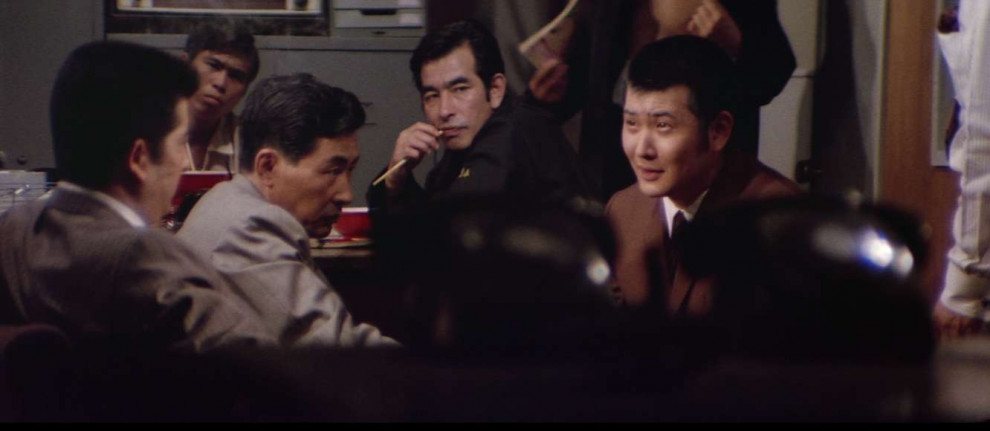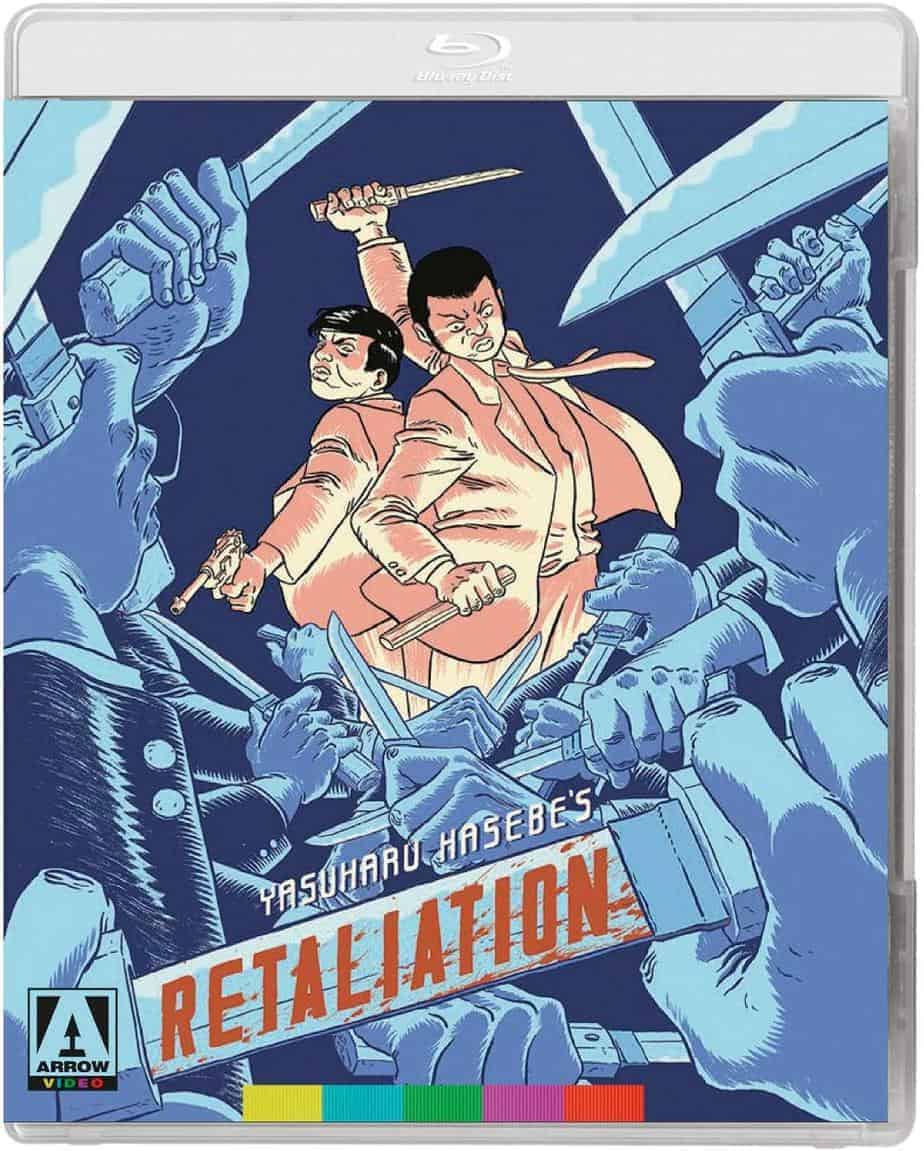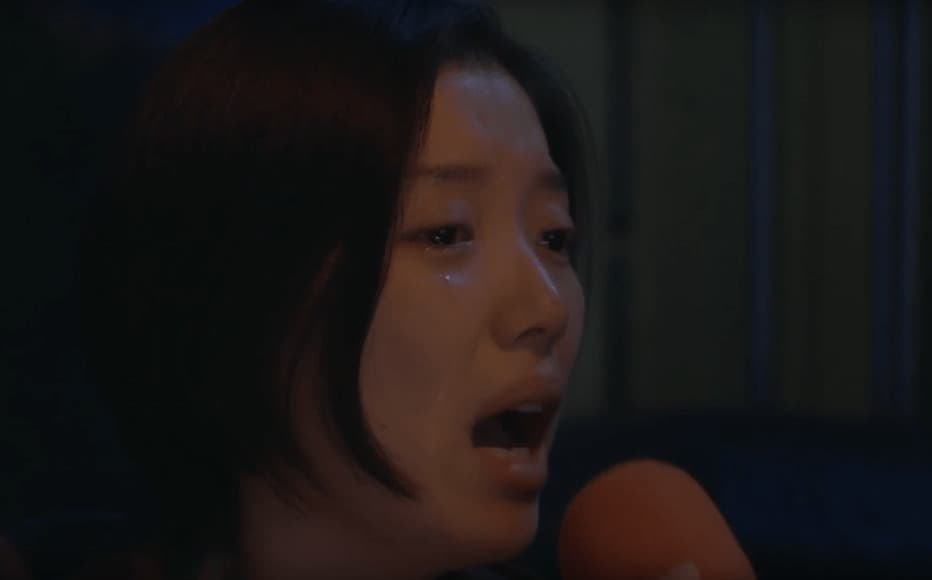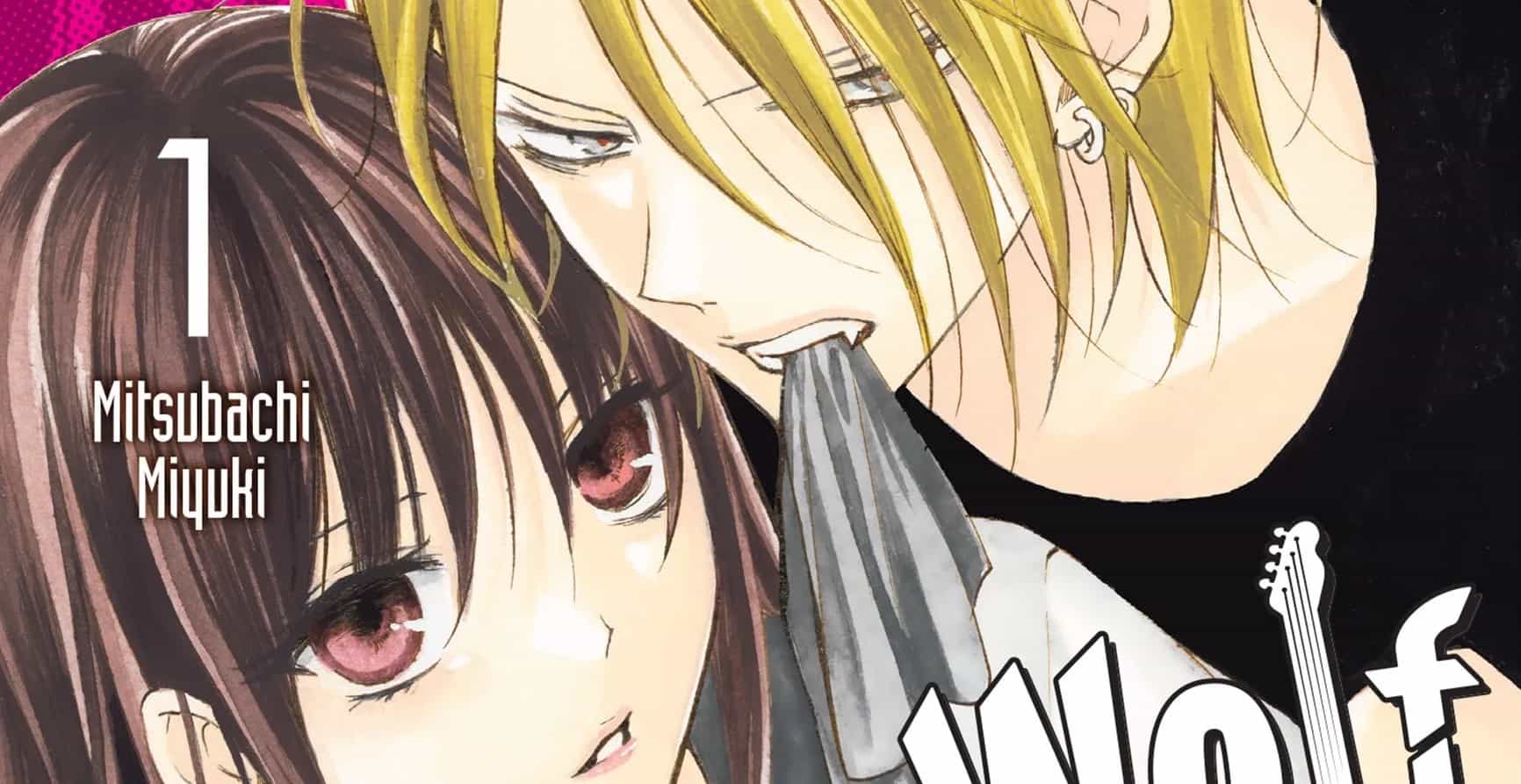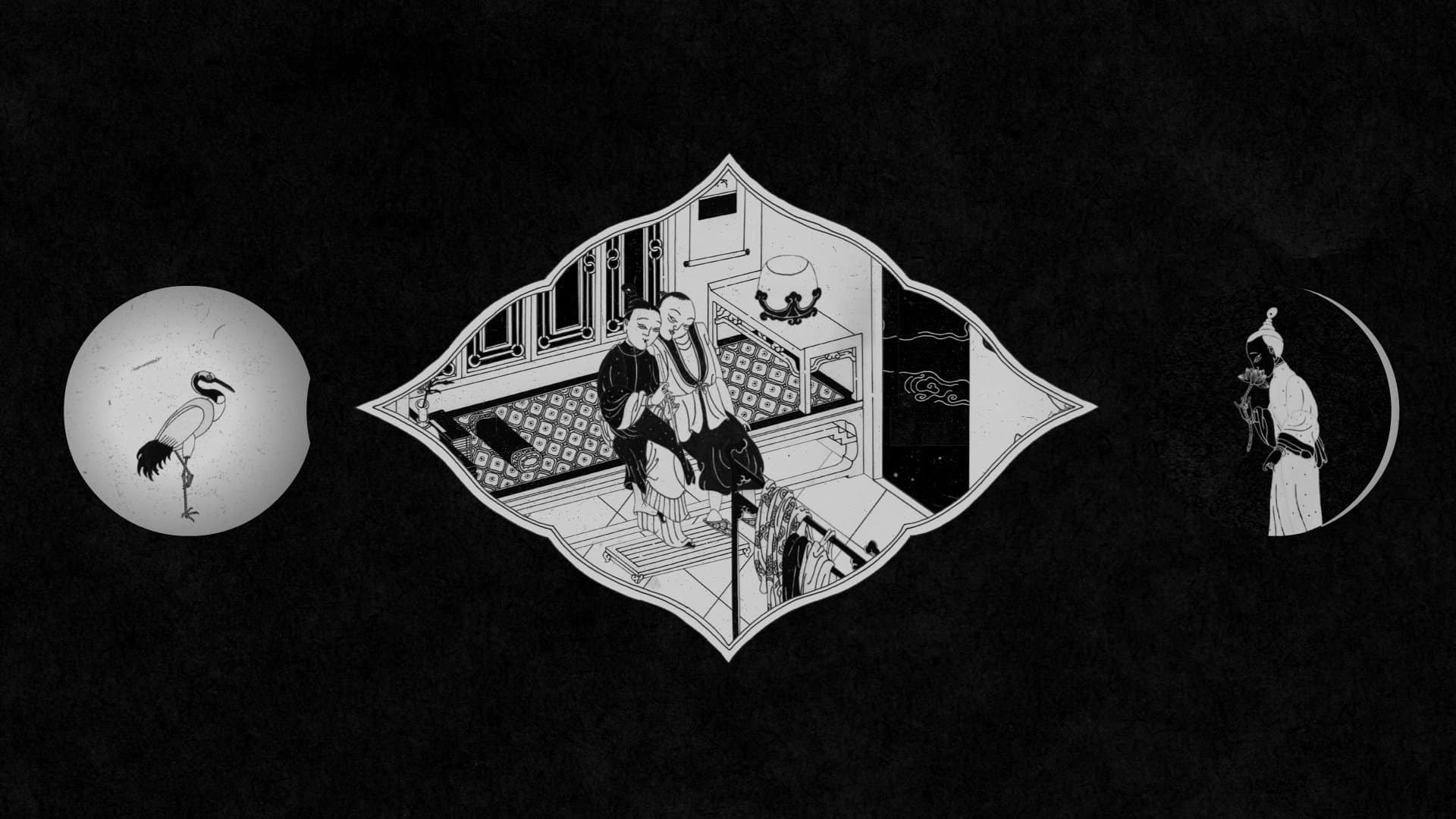Leader of the new generation of Nikkatsu directors in the late 1960s, Yasuharu Hasebe came up with a number of mostly realistic films about Yakuza life, of which “Retaliation” is a prominent sample, despite featuring a protagonist from the “old guard”, Akira Kobayashi.
Buy This Title
As the story begins, Jiro is just being released from prison. However, his future looks anything but ideal. Before even walking a few meters from the prison door, Hino, another yakuza, takes him to a nearby area and attacks him, seeking revenge for a friend Jiro killed. Hino's girlfriend stops the fight, but he is not deterred from seeking revenge. Furthermore, as soon as Jiro visits his old boss, he is informed that his gang is practically non-existent, a fact that forces him to approach the powerful Hasama family to ask for a job. Out of respect for his former boss, Hasama offers him a task, to take over Takagawa City, an up and rising area where a factory is to be built, with the reward being Jiro becoming the boss of the city. Expectedly though, there is a twist. There are already two gangs in the city, Tono, who used to have control but now face pressure they do not seem to handle by the new Aobe family.

Furthermore, the construction company that wants to build the factory has tasked the latter with forcing the poor farmers of the area to sell their land, while Tono is trying to retain their influence in the area by siding with the farmers. Jiro heads first to the city with six other men, and soon Hino is also included in his gang, despite not having forgotten his oath of revenge. Using extremely cunning tactics, Jiro manages to make much progress in, but treachery is right around the corner.
Yasuharu Hasebe directs a mostly straightforward film, which manages, however, to include a number of social comments. Regarding the first part, and as the pace is frantic, courtesy of Mutsuo Tanji's editing, and the events torrenting, Hasebe does not waste any time in establishing the powers at play of the film and the main elements of the story. The feud between Jiro and Hino, the debt Jiro feels he owes to his former boss, the conflict and the difference in tactics between the old style yakuza gangs and the modern ones, the victimization of the farmers as personified in the members of the Hayafune family, and the fact that the lack of honor is what separates Jiro with his adversaries, form the basis of the narrative. The many and quite well-shot action scenes and the exploitation elements revolving around Saeko Hayafune (played by Meiko Kaji) and a number of prostitutes take care of the entertainment aspect of the narrative. Lastly, Jiro's tactics that resemble much the ones implemented by The Samurai in “Yojimbo”, add another layer to the movie as much as they exemplify his intelligence and cunningness.
Regarding the comments, apart for the aforementioned regarding the old and new and the farmers, Hasebe also presents the connection between big companies and the new yakuza, whose members were used as henchmen, and the concept of the leader, particularly regarding the very hard and occasionally regretful decisions one must take.
On the other hand, there are some inconsistencies in the various sub stories here and there, and the reasoning of some of the yakuza actions are questionable to say the least. This aspect and the focus on the action/violence and the image in general is what make the film an entry in the exploitation category. In that fashion, Muneo Ueda's cinematography is impressive, particularly for the era the film was shot, with his presentation of the various settings being quite artful. Particularly the scene in the rain and the intense finale are truly memorable in their violent glory.
The acting is probably one of the film's best aspects. Akira Kobayashi looks as cool and macho as possible, the personification of the alpha male, being equally good-looking, intelligent, strong and honorable. In front of Jiro, Jo Shishido's Hino seems like a caricature, but the late actor manages to steal the show a number of times, particularly due to his reactions to his constant losing. Tamio Kawaji as Naruse also gives a memorable performance, particularly because he speaks in verses most of the time.
Yasuharu Hasebe did not do anything particularly original with “Retaliation”, but the way he connected all the elements in the film is quite interesting, and results into a truly memorable movie among the plethora of similar productions of the era.


